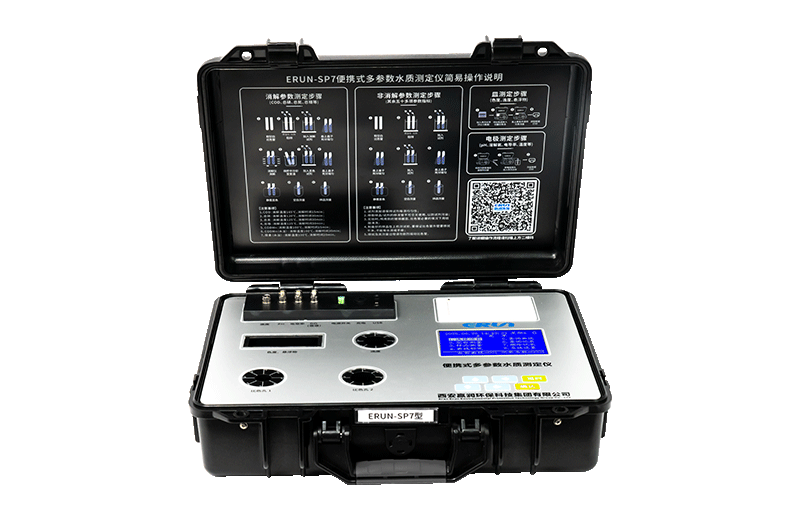Want to ensure safe water with a residual chlorine test? Portable meters like ERUN’s FCL30 deliver fast, accurate results, meeting GB 5749-2022 standards. Here’s everything you need to know about testing residual chlorine, choosing the right equipment, and real-world applications to keep water safe!
Residual chlorine is the chlorine left in water after disinfection, ensuring it remains free of harmful pathogens. According to GB 5749-2022 Hygiene Standard for Drinking Water, residual chlorine in tap water should be 0.05–0.7 mg/L to maintain safety without affecting taste. Too little chlorine risks bacterial growth; too much can form harmful byproducts like trihalomethanes (THMs). A 2023 study in Environmental Science & Technology found that improper chlorine levels increase THM formation by up to 40%, posing health risks. Portable residual chlorine meters provide quick, on-site measurements, helping water treatment professionals maintain compliance and safety.
Health Protection: Ensures water is free from pathogens like E. coli.
Regulatory Compliance: Meets national standards for safe drinking water.
Cost Efficiency: Prevents over-chlorination, reducing chemical costs by 10-15%.

The ERUN FCL30, developed by Erun Group, is a portable residual chlorine meter designed for field and lab use. Using the three-electrode method, it measures free chlorine without reagents, offering ±0.01 mg/L accuracy. Compliant with GB 5749-2022, it’s ideal for tap water, pool water, and industrial applications. Its IP67 waterproof design and 1000-data-point memory make it a reliable choice for professionals.
Key Features: Reagent-free, 0.01 mg/L resolution, long-lasting AAA battery.
Applications: Drinking water, swimming pools, and wastewater testing.
Learn More: ERUN FCL30 Details.
Residual chlorine testing measures free chlorine (hypochlorous acid and hypochlorite ions) or total chlorine (free plus combined forms like chloramines). The ERUN FCL30 uses a polarographic sensor, detecting electrochemical signals from chlorine reactions. Unlike DPD colorimetric methods, it requires no reagents, reducing errors and costs. A 2022 Water Research study showed polarographic methods have 5% higher accuracy than DPD in low-turbidity water. The process involves immersing the sensor in a sample, with results displayed in seconds on a backlit LCD.
Speed: Results in under 10 seconds.
Ease of Use: No calibration reagents needed.
Accuracy: Minimizes interference from dissolved oxygen or sunlight.
In 2024, a rural water supply station in Shaanxi Province used the ERUN FCL30 to monitor tap water. Initial tests showed residual chlorine at 0.03 mg/L, below GB 5749-2022’s 0.05 mg/L minimum, risking microbial contamination. By adjusting chlorination, levels were raised to 0.1 mg/L, ensuring compliance. The station reduced testing time by 60% compared to DPD kits, saving 20,000 CNY annually on reagents. This case highlights how portable meters streamline compliance and cut costs.
| Method | Pros | Cons | Best For |
Polarographic (e.g., ERUN FCL30) | Reagent-free, high accuracy (±0.01 mg/L), fast | Higher initial cost | Field testing, high-precision needs |
DPD Colorimetric | Affordable, widely used | Reagent-dependent, sunlight interference | Lab settings, budget constraints |
Titration | High precision for lab use | Time-consuming, complex | Research, calibration |
GB 5749-2022 mandates residual chlorine levels of 0.05–0.7 mg/L in drinking water to ensure disinfection without health risks. For industrial water, GB/T 1576-2018 sets similar thresholds for boiler water to prevent corrosion. The ERUN FCL30’s electrochemical method aligns with these standards, offering reliable measurements. The Technical Specification for Drinking Water Quality Monitoring (HJ 1048-2019) emphasizes regular testing to prevent pathogen regrowth, making portable meters essential for compliance.
Reference: National Standards Platform.
Municipal Water: Ensures safe tap water in urban and rural systems.
Swimming Pools: Maintains chlorine levels (1.0–3.0 mg/L) for hygiene.
Food Processing: Monitors wash water to meet food safety standards.
Wastewater: Tracks residual chlorine in effluents to comply with discharge regulations.
Erun Group’s FCL30 stands out for its portability, accuracy, and compliance with national standards. With ISO 9001 certification and a 95% customer satisfaction rate across 200+ water treatment facilities, Erun delivers reliable solutions. The FCL30’s reagent-free design reduces maintenance costs by 25% compared to DPD-based meters, per user feedback. Its robust design suits harsh field conditions, making it a top choice for professionals.
Residual chlorine testing is critical for safe water. The ERUN FCL30 portable meter offers a user-friendly, accurate solution for field and lab use, ensuring compliance with GB 5749-2022. Ready to upgrade your water quality monitoring? Visit Erun’s website for more details!